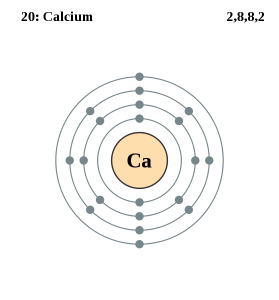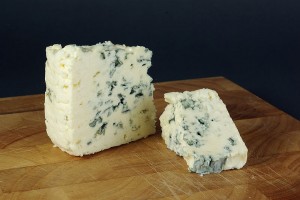
14 Oct calcium, vegetarianism and fortified foods
 As promised, I have been hitting the journals to find peer reviewed research on the topic of calcium and vegetarianism. Calcium is a sore topic with me. I know we need 1000 mg per day (both men and women), and as lactose intolerance affects so many people (up to 75% – although they may not be aware of it), I am on a quest of sorts, to find out how to avoid conditions like osteoporosis, which is partially due to a lack of calcium in the diet, without consuming dairy.
As promised, I have been hitting the journals to find peer reviewed research on the topic of calcium and vegetarianism. Calcium is a sore topic with me. I know we need 1000 mg per day (both men and women), and as lactose intolerance affects so many people (up to 75% – although they may not be aware of it), I am on a quest of sorts, to find out how to avoid conditions like osteoporosis, which is partially due to a lack of calcium in the diet, without consuming dairy.
Lactose intolerance
Interestingly, one study said that even people who are lactose intolerant, still absorb around the same amount of calcium from dairy products. (1) It is just that for most people dairy can’t be digested, and results in skin outbreaks (without fail), not to mention stomach cramps and diarrhoea. There is certainly a case for the fact that an optimum balance of friendly bacteria in the gut, can have beneficial effects on those of us who are lactose intolerant, and can help to digest dairy.
Plant food diets
It would seem that it is difficult to get the recommended amount of calcium in a plant food diet, and this is not helped by the fact that some of the foods that are high in calcium such as leafy greens, also contain oxalates, which can bind to the calcium in plant foods and make them unavailable for the body to use. (2)
Calcium in the body
The problem is you see, that if you don’t consume enough calcium in your daily diet, then, your body will extract calcium from your skeleton and from your teeth, reducing your stores, and depleting the mineral density of your bones. (3) This is in direct contrast to the pH theory that suggests that animal proteins which are acidic, suck calcium out of your skeleton to neutralise the acids.
Of course some studies also suggest that osteoporosis is determined by more factors than calcium, such as exercise and vitamin D. (4) However, it does seem sensible to try to get the proper amount of calcium each day, since 2 % of our body mass is made up of this mineral.
Calcium supplements
Supplements don’t help, or at least, they can help and have nasty side effects such as kidney stones and heart disease. (5) However, some evidence points to the fact that this is only the case in people who take large doses of calcium supplements (in excess of 2000 mg per day). (3)
Of course there are other meat based forms of calcium, which are great, like salmon (with its bones) and sardines (urgh). This is where research on vegetarianism comes in. It seems fairly evident from the literature that people who eat a plant based diet have lower body mass indexes (BMI), lower risk of hypertension, diabetes, heart disease and cancer. (6)
Vegetarians have higher levels of antioxidant vitamins. (2) One studied showed that there is no difference between the mineral analysis of vegetarians, and non vegetarians in terms of calcium, zinc, iron and protein. (7) Although, other studies show that vegans do not get enough calcium. (8) I suppose these would be vegans rather than vegetarians.
 It would be great if dairy was easily digestible and did not result in acne. It would be better if calcium supplements were not associated with other health risks.
It would be great if dairy was easily digestible and did not result in acne. It would be better if calcium supplements were not associated with other health risks.
There is some hope in the fact that some breakfast cereals are fortified with calcium. It will be fun to hunt these down in the supermarket! Some orange juice is calcium fortified, and tofu is also a good source of calcium, although, soy is often genetically modified and grown in poor soil.
I am finding that I am getting enough daily calcium from drinking non dairy, fortified milk, that I bought from the supermarket. It contains 300 mg per 250 ml serve, so it doesn’t take long to get up to 1000 mg a day with extra calcium from a little bit of dairy (in the form of cheese) or salmon with bones each day.
Dairy has been associated with some cancers, and the pH theory comes in to it again, about animal protein, leaving an acid residue and sucking out the calcium from your bones to neutralise it.
There is evidence for the fact that consumption of coffee and animal protein can increase the rate your body excretes calcium. This may be the starting point for the pH theory, or provide more evidence for it.
Until next week then.
References
1. Medeiros LC, Lederman HM, de Morais MB Lactose malabsorption, calcium intake, and bone mass in children and adolescents. Journal Of Pediatric Gastroenterology And Nutrition [J Pediatr Gastroenterol Nutr] 2012 Feb; Vol. 54 (2), pp. 204-9.
2. Béderová, A, Kudláčková, M, Šimončič, R, Magálová, T, Grančičová, E, Klvanová, J et al. Comparison of nutrient intake and corresponding biochemical parameters in adolescent vegetarians and non-vegetarians. Časopis LékaruČeských 139 (13),2000, 396-400
3. Calcium; State Government of Victoria [from the Internet] Victoria; 2013 [cited 2013 Oct 14, updated 2013 Sep 25] Available from: https://www.betterhealth.vic.gov.au/bhcv2/bhcarticles.nsf/pages/Calcium
4. Dairy’s great calcium myth. Animals Australia [Internet] North Melbourne; 2013 [cited 2013 Oct 14] Available from: https://www.animalsaustralia.org/features/dairy-calcium-myth.php
5. Kormos W Calcium Supplement Basics. On Call. Harvard Men’s Health Watch. October 2012
6. Craig WJ Nutrition concerns and health effects of vegetarian diets. NCP – Nutrition in Clinical Practice 25 (6) Silver Spring: American Society for Parenteral and Enteral Nutrition, 2010, 613-620
7. JungHee C, MiKyoung K, SoHyeon K, SangWoon C, YooKyoung P; Association between hair mineral content and nutritional status in vegetarians and non-vegetarians. Korean Journal of Nutrition 44 (3) Seoul: The Korean Nutrition Society,2011, 203-211
8. Appleby P, Roddam A, Allen N, Key T. Comparative fracture risk in vegetarians and nonvegetarians in EPIC-Oxford. European Journal of Clinical Nutrition. Dec2007, Vol. 61 Issue 12, p1400-1406.

No Comments